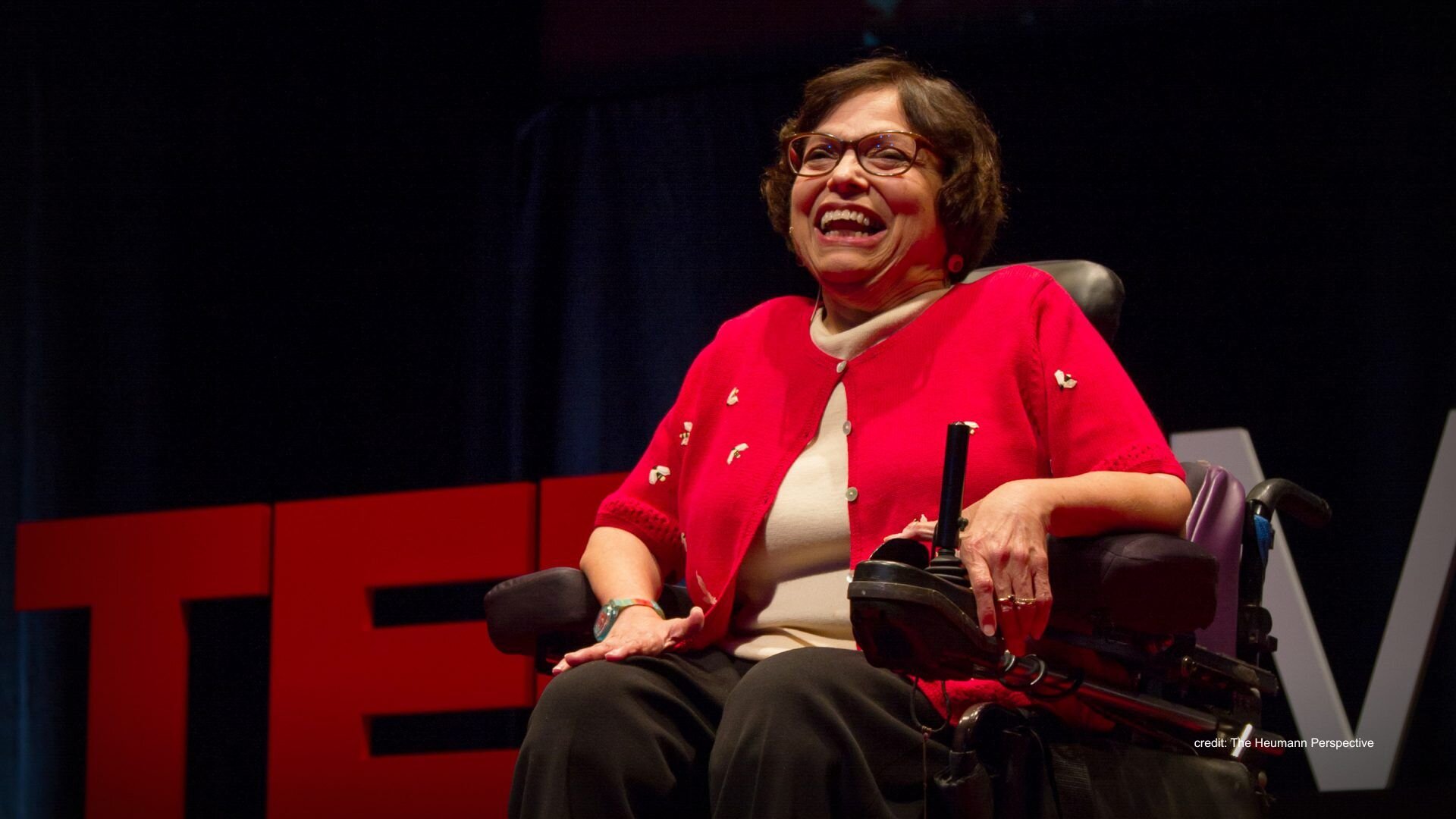We’ll probably never know if being called a “fire hazard” at least twice in her young life lit the spark inside Judy Heumann. We do know the barriers and discrimination she faced in her early years helped inspire a powerfully effective life of activism.
It’s hard to imagine what life was like for people with disabilities back in the 1940s when Judy Heumann was born. After contracting polio at just 18 months old, Heumann would spend the rest of her life in a wheelchair.
This was well before disability rights legislation finally forced our country to focus on accessibility and inclusion for people of differing abilities. Instead, her reality growing up was an unending series of doors being closed in her face.
On her first day of kindergarten, the principal at her local school in Brooklyn refused to let Heumann enter, calling her a “fire hazard.” The school chose instead to provide in-home education for about two hours each week … far short of what her bright mind and intellect required.
Heumann’s parents began a years-long fight for their daughter’s right to a proper education. Enrolled in a special program for disabled children in the fourth grade in PS 219, it was expected that Heumann would return to home schooling once she reached high school.
That was not good enough for her mother, who rallied the support of other parents to force the school board to change their discriminatory policies, and Heumann was enrolled in her local public high school.
She faced more than the typical share of challenges navigating those tricky high school years. Then, she spent some time at Camp Jened, a summer camp in the Catskills designed for people with disabilities. And everything changed.
As Heumann notes in the documentary "Crip Camp," it was here she finally experienced inclusivity and belonging … and this fueled her passion to create a world where people with disabilities could embrace the same experiences as everyone else.
Disability only becomes a tragedy for me when society fails to provide the things we need to lead our lives––job opportunities or barrier-free buildings, for example. It is not a tragedy to me that I'm living in a wheelchair.
Never shy about fighting for her needs and others, Heumann enrolled in Long Island University, where she organized other students who protested for better access and accommodations for disabilities. Applying for her first teaching job, she was denied and told once again she would be a fire hazard, this time by the New York Board of Education.
She sued, ultimately winning an out-of-court settlement and becoming the first teacher in New York to use a wheelchair.
From there, the fire only grew. Heumann expanded her activism in the ‘70s when then-president Nixon blocked legislation meant to expand access for all. She organized protests in NY and DC, with dozens of like-minded people blocking the streets in their wheelchairs to raise awareness. She was instrumental in founding the World Institute on Disability in 1983, and is widely known for her work in making the Americans with Disabilities Act (ADA) a reality.
Heumann ultimately went from being called a public hazard to being named “the mother of the disability rights movement;” she eventually served under both Presidents Clinton and Obama.
When Heumann died in March of 2023 she left behind a world far different than the one she was born into. Without a doubt we still have work to do, but Ms. Heumann proved that change – significant, lasting change – is possible when you dare to imagine and act to build a better world for all.

